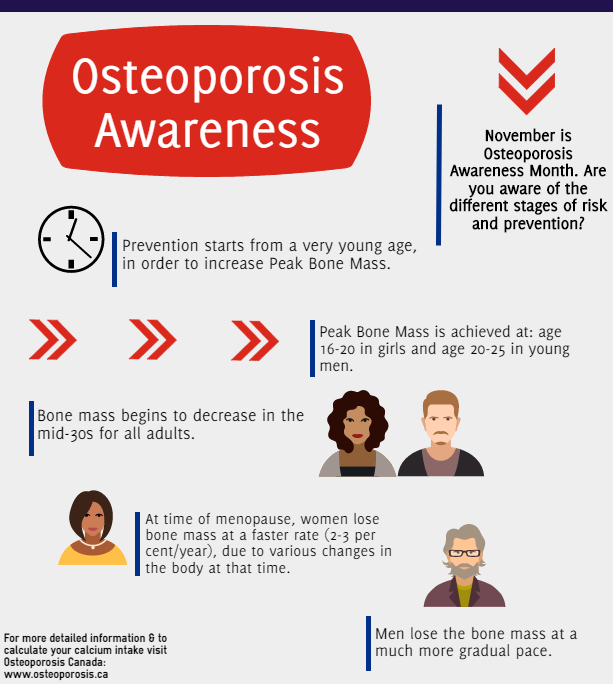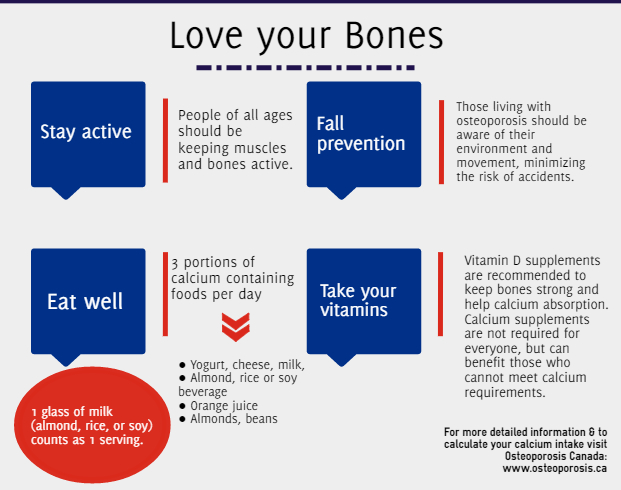Healthy bones, happy life: November is Osteoporosis Awareness Month!
“People often don't think of their bones unless they have a fracture,” says Dr. Suzanne Morin, clinician scientist at the McGill University Health Centre (MUHC). “We want people to think about their bones at a much earlier age, and we want them to be active. It's much easier to get yourself into an exercise program or change your diet when you're younger; it's a habit you have to get into.”
Dr. Morin, whose main research interest is health-related outcomes of osteoporosis, explains that while muscular skeletal health relies slightly on genes, there are plenty of ways we can take control of our bone health, namely staying active and eating well. Dr. Morin says that it’s the common prescription that most doctors and healthcare workers prescribe, and they do so because it truly works.
Interested in learning how to have a better relationship with your bones? Have a look at the infographic below with some tips and tricks to keep your skeleton happy and healthy.


Research groups have recently published conflicting reports regarding the safety of calcium supplements, namely the possible association between calcium supplements and an increase in cardiovascular issues, like heart attack and stroke.
The study is still accepting volunteers to take part.
You may qualify to participate if you are:
- a non-smoker;
- over the age of 50 and have had no menstrual period for at least 2 years;
- not taking medication for high blood pressure, high cholesterol, or the management of osteoporosis;
For the period of 1-year, you must be willing to:
- alter the amount of calcium in your diet;
- take or abstain from taking calcium supplements;
Participants will receive all supplements at no cost and will be reimbursed for parking fees.
For more information: 514 934-1934 ext. 45742 or [email protected].